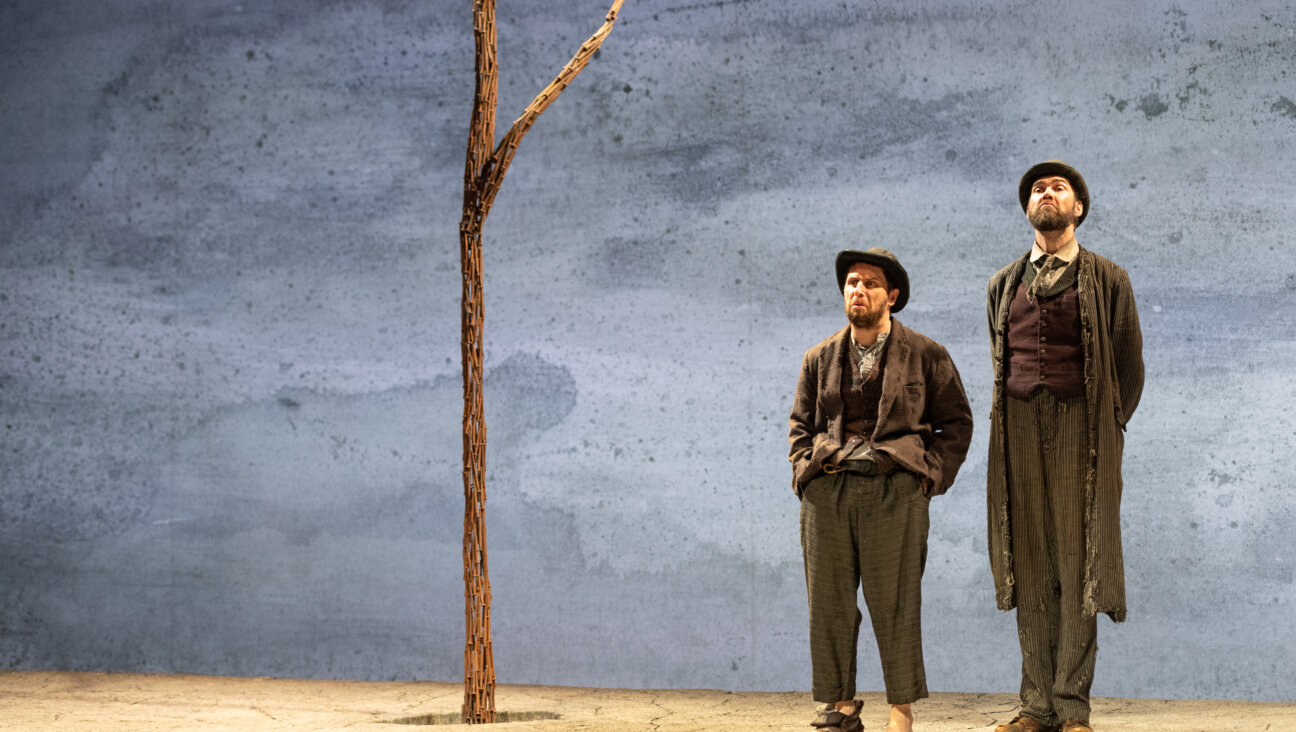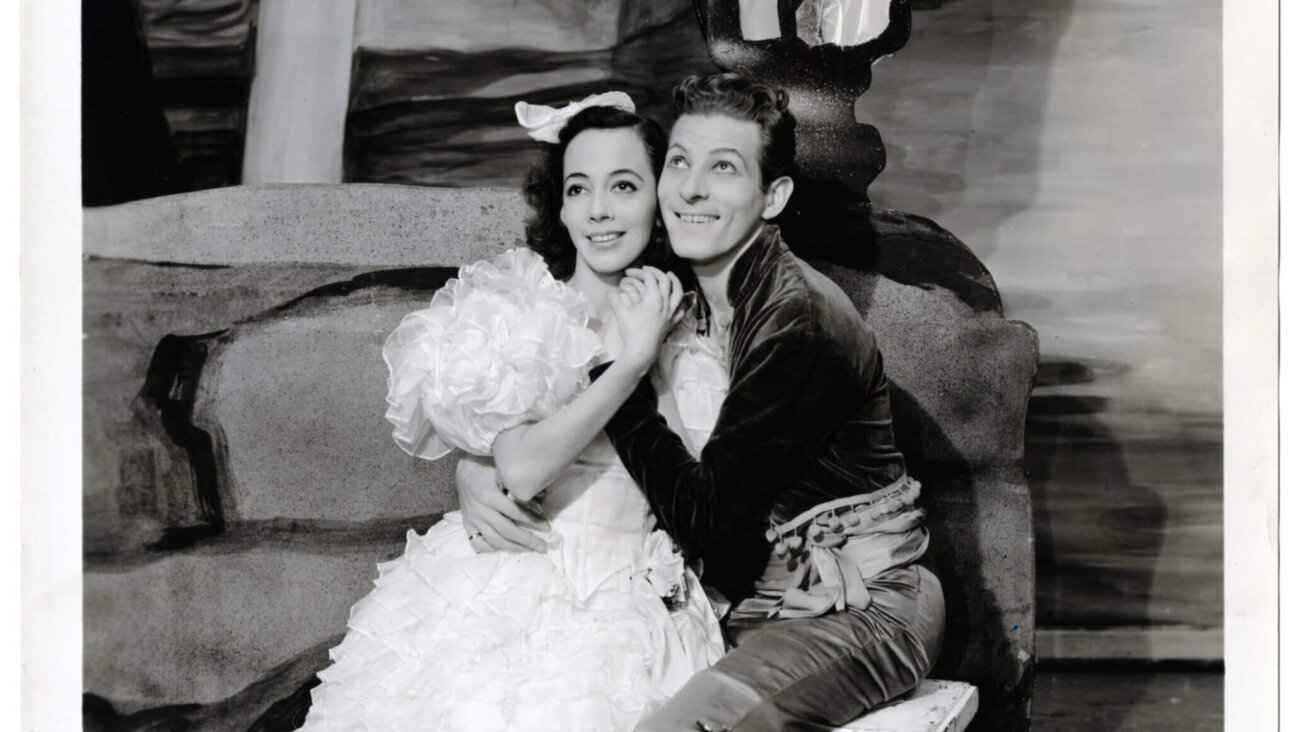‘My Version of the Facts’ By Carla Pekelis (Northwestern University Press)
One in a series of occasional excepts from books that catch our eye.
Carla Pekelis was born in Rome in 1907, into a comfortably assimilated large extended bourgeois family. At 24, she married Alexander Pekelis, a Jewish Russian émigré who would become a seminal figure in American and international civil rights law. A founding member of the New School’s “university-in-exile,” in 1945 he became chief consultant to the Commission on Law and Social Action of the American Jewish Congress, a post he held until his death in an airplane accident at Shannon, Ireland, while returning from an international Zionist conference as a representative of the Labor Zionist movement. After her husband’s sudden death in 1946, Carla raised a family of five children alone. She taught Italian at the New School for Social Research and went on to found the Italian Studies Department at Sarah Lawrence College. She died in New York City in 1985. Her memoir describes growing up Jewish and Italian before and during the emergence of fascism, as well as her family’s turbulent flight across Western Europe to the United States.
* * *|
What was it like to be a Jewish child in Italy at the beginning of the century? What was it like? As a matter of fact, like nothing, nothing at all. There was no observation of rituals, no celebration of holidays in my parents’ home — and that was much more than a failure to preserve the details while maintaining the spirit. Thinking about it now, this attitude was a sort of pride in agnosticism, a pride that my parents shared with many Italians of the time. Italy had come onto the world stage as a nation only a few years before with the motto “Free church in a free state” and the gates of the ghettos had been thrown open to a world where it was not only possible to profess whatever religion one wished but it was possible, and, actually fashionable, to profess none at all….
Our third daughter was born on July 10, 1938. [My week in bed was not yet over] when I picked up the morning paper that Alex had forgotten there on his way to breakfast. Its huge headline read, “The Jews Are Not of the Italian Race.” …. The first racial laws made their appearance at the beginning of September 1938. All Italian Jews were forbidden to attend public schools and universities, as well as to teach there. Jews who were naturalized Italians, Alex among them, ipso facto lost their citizenship and were requested to leave the country within six months.
As for our non-Jewish friends, their attitudes ranged from bewilderment to perplexity to indignation, according to their level of sophistication.” Our greengrocer, shook her head sadly and said, “Poor Lady!” She then added hesitantly in her typical Florentine dialect: “Ma icchevo dire, ebreo?” “But what does it mean, Jewish?” Meanwhile my friend Bianca, whose parents came from the land-owning stock of the upper bourgeoisie and whose sister was a nun, hugged me with her customary warmth. “Poor, poor Carla,” she sighed, “ I can find only one explanation for this drastic measure. Some Jew must have done something terrible that cannot be revealed. And all of you are paying, atoning, for this fact.”….
We were in Tours, when the news we had been dreading for weeks exploded on us: Italy had entered the war! Again Alex picked up and left for Paris. The cancellation of his Italian citizenship and passport now became an asset. The fact that my mother, the children and I were Italian (as were most of his clients) became the liability. He needed directives as to our status. This time he left the car with me, though I didn’t drive. Should he not be back the next day, I was to hire a driver and get out. But to where?….
After months of waiting in Portugal for visas out of Europe, a long shot connection to an uncle in Brazil got the family the precious visas.
When we already had pens in hand to sign the final documents, we noticed one of the guarantees we were required to give. We had to affirm under oath that we were not Jews. The consul was very friendly. In the face of our consternation, he patiently explained that it was only a formality; that it had been added only recently to the standard forms in order to calm the fears of a few alarmists worried that the influx of Jewish immigrants might reach excessive proportions. “It would be mad to take it seriously,” he told us, “to risk the future of your family’s for an irrelevant detail!”
In some strange way, we were too tired, too discouraged to take his advice. We had come so far, both in spirit as in space. Florence, Nice, Paris, Tours, Haut Bagnac, Marseille, Perpignan, Barcelona, Madrid, Badajoz, Lisbon — all that wandering, and for what? To settle in a country that, pro forma or not, closed its doors to Jewish immigrants? And to go there denying precisely the identity that above all else had driven us into wandering?
We excused ourselves to the Brazilian Consul and took our leave….
I remember that from the deck of the Serpa Pinto we looked longingly at the shore opposite us and couldn’t tear ourselves away to go to bed. I don’t think I saw any of the famous sights: not the Statue of Liberty, nor the lighted skyscrapers, nor the city’s skyline. Only the dark shore and along it the moving lights of a myriad of automobiles. I could not tear my eyes away, fascinated and frightened. Was it possible that those streets would become familiar to us too, that we would have a house, that we would return to it by car at the end of the day? Shivering with cold, I silently wished that he night ahead might last forever.
When the telephone rang, it was not yet day. As usual, when I was wakened suddenly, my heart started pounding. I felt for the lamp and my slippers in the darkness. The telephone rang again. Maybe it was Alex from the airport. I thought impatiently that it would wake the children and ran bare-footed to pick up the receiver.
But the voice that answered was unknown and uncertain, a man’s voice. I thought it was a mistake. But he was calling me, about Alex. My eyes were still half closed, and the words reached me through sleep as if through a fog. “A forced landing … we think the passengers are safe ….” The voice became more distinct, more confident, in a series of hurried and demanding questions. How old was he? Was he returning from the Zionist Conference in Basle? What party did he represent? How many children?’
I answered mechanically: “Forty-five years old. Yes, he was coming from Basle. Delegate of Poale Zion, yes, Poale Zion, the Zionist Labor Party. Five children.” As I spoke, the anguish of the past tense the man was using for his questions wrenched my heart. When I came to five children, the voice asked incredulously, “How many?”
I repeated, “Five.” He gasped and then controlled himself and said in a jolly tone, “A fine family!” I asked, “Is it certain that the passengers are all safe?” “That’s what we think.”
Then the voice was gone.
* * *|
On May 24, the Center for Jewish History in New York will present a panel in honor of the publication of “My Version of the Facts.” The panel will include Dr. Judy Serafini-Sauli, professor of Italian at Sarah Lawrence College; Fabio Girelli-Carasi, professor of Modern Languages and Literatures at CUNY Brooklyn College, and Carla Pekelis’s daughters, Simona McCray Peterson and Coco Dalton. For more information, please visit ww.cjh.org or call 917-606-8200.

I hope you appreciated this article. Before you go, I’d like to ask you to please support the Forward’s award-winning journalism this Passover.
In this age of misinformation, our work is needed like never before. We report on the news that matters most to American Jews, driven by truth, not ideology.
At a time when newsrooms are closing or cutting back, the Forward has removed its paywall. That means for the first time in our 126-year history, Forward journalism is free to everyone, everywhere. With an ongoing war, rising antisemitism, and a flood of disinformation that may affect the upcoming election, we believe that free and open access to Jewish journalism is imperative.
Readers like you make it all possible. Right now, we’re in the middle of our Passover Pledge Drive and we need 500 people to step up and make a gift to sustain our trustworthy, independent journalism.
Make a gift of any size and become a Forward member today. You’ll support our mission to tell the American Jewish story fully and fairly.
— Rachel Fishman Feddersen, Publisher and CEO
Join our mission to tell the Jewish story fully and fairly.
Our Goal: 500 gifts during our Passover Pledge Drive!
























